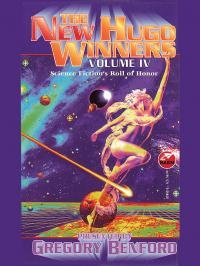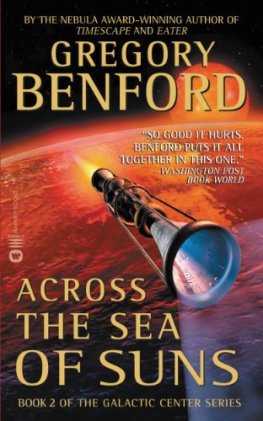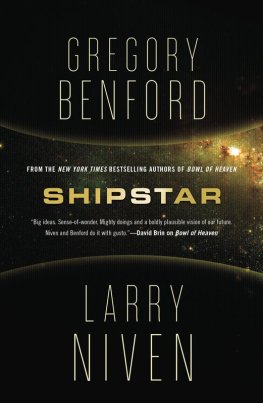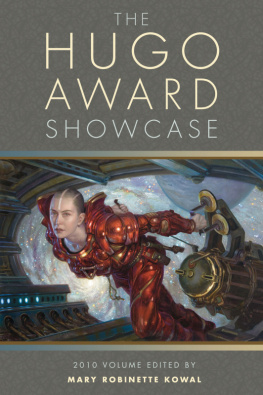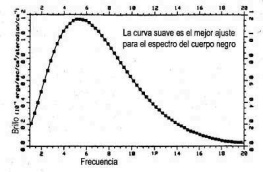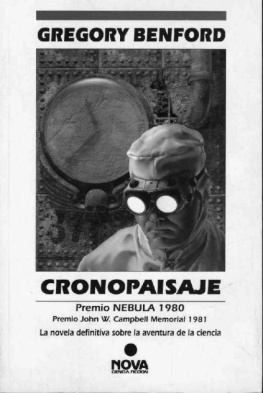Gregori Benford - The New Hugo Winners - Volume IV
Here you can read online Gregori Benford - The New Hugo Winners - Volume IV full text of the book (entire story) in english for free. Download pdf and epub, get meaning, cover and reviews about this ebook. year: 1997, publisher: Baen, genre: Science fiction. Description of the work, (preface) as well as reviews are available. Best literature library LitArk.com created for fans of good reading and offers a wide selection of genres:
Romance novel
Science fiction
Adventure
Detective
Science
History
Home and family
Prose
Art
Politics
Computer
Non-fiction
Religion
Business
Children
Humor
Choose a favorite category and find really read worthwhile books. Enjoy immersion in the world of imagination, feel the emotions of the characters or learn something new for yourself, make an fascinating discovery.
- Book:The New Hugo Winners - Volume IV
- Author:
- Publisher:Baen
- Genre:
- Year:1997
- ISBN:0-671-87852-2
- Rating:4 / 5
- Favourites:Add to favourites
- Your mark:
- 80
- 1
- 2
- 3
- 4
- 5
The New Hugo Winners - Volume IV: summary, description and annotation
We offer to read an annotation, description, summary or preface (depends on what the author of the book "The New Hugo Winners - Volume IV" wrote himself). If you haven't found the necessary information about the book — write in the comments, we will try to find it.
The New Hugo Winners - Volume IV — read online for free the complete book (whole text) full work
Below is the text of the book, divided by pages. System saving the place of the last page read, allows you to conveniently read the book "The New Hugo Winners - Volume IV" online for free, without having to search again every time where you left off. Put a bookmark, and you can go to the page where you finished reading at any time.
Font size:
Interval:
Bookmark:
The New Hugo Winners - Volume IV
ISBN: 0-671-87852-2
Cover art by Bob Eggleton
First printing, November 1997
1992
50th Convention
Orlando
A Walk In The Sun
by Geoffrey A. Landis
Hard science fiction proceeds from a fidelity to both the facts and attitudes of science, into the murkier landscape of the human soul. In this crisply constructed story, Landis hedges his hero in with inescapable constraints, then demands that solution come from facing the hard facts of the airless moon. His way out demands an extreme of endurance and cleverness, but all along the game is played fairlyno miracles pop out of hats.
Geoff Landis is uniquely qualified to play this exacting game, for he is a trained physicist working for NASA. His career is built on solidly made short stories, making him a member of a small band, perhaps no more than thirty, who make up the hard sf community.
I have sat in convention bars and tossed ideas back and forth with Geoff for hours, and always found his instincts for technical matters on the mark. You will find this tale of adroitly conceived constraint up to his highest standard, and richly deserving its award. A tale of survival in desperate, strange circumstances, it stands in a long sf tradition, and quite matches the classics.
The pilots have a saying: a good landing is any landing you can walk away from.
Perhaps Sanjiv might have done better, if he'd been alive. Trish had done the best she could. All things considered, it was a far better landing than she had any right to expect.
Titanium struts, pencil-slender, had never been designed to take the force of a landing. Paper-thin pressure walls had buckled and shattered, spreading wreckage out into the vacuum and across a square kilometer of lunar surface. An instant before impact she remembered to blow the tanks. There was no explosion, but no landing could have been gentle enough to keep Moonshadow together. In eerie silence, the fragile ship had crumpled and ripped apart like a discarded aluminum can.
The piloting module had torn open and broken loose from the main part of the ship. The fragment settled against a crater wall. When it stopped moving, Trish unbuckled the straps that held her in the pilot's seat and fell slowly to the ceiling. She oriented herself to the unaccustomed gravity, found an undamaged EVA pack and plugged it into her suit, then crawled out into the sunlight through the jagged hole where the living module had been attached.
She stood on the grey lunar surface and stared. Her shadow reached out ahead of her, a pool of inky black in the shape of a fantastically stretched man. The landscape was rugged and utterly barren, painted in stark shades of grey and black. "Magnificent desolation," she whispered. Behind her, the sun hovered just over the mountains, glinting off shards of titanium and steel scattered across the cratered plain.
Patricia Jay Mulligan looked out across the desolate moonscape and tried not to weep.
First things first. She took the radio out from the shattered crew compartment and tried it. Nothing. That was no surprise; Earth was over the horizon, and there were no other ships in cislunar space.
After a little searching she found Sanjiv and Theresa. In the low gravity they were absurdly easy to carry. There was no use in burying them. She sat them in a niche between two boulders, facing the sun, facing west, toward where the Earth was hidden behind a range of black mountains. She tried to think of the right words to say, and failed. Perhaps as well; she wouldn't know the proper service for Sanjiv anyway. "Goodbye, Sanjiv. Goodbye, Theresa. I wishI wish things would have been different. I'm sorry." Her voice was barely more than a whisper. "Go with God."
She tried not to think of how soon she was likely to be joining them.
She forced herself to think. What would her sister have done? Survive. Karen would survive. First: inventory your assets. She was alive, miraculously unhurt. Her vacuum suit was in serviceable condition. Life-support was powered by the suit's solar arrays; she had air and water for as long as the sun continued to shine. Scavenging the wreckage yielded plenty of unbroken food packs; she wasn't about to starve.
Second: call for help. In this case, the nearest help was a quarter of a million miles over the horizon. She would need a high-gain antenna and a mountain peak with a view of Earth.
In its computer, Moonshadow had carried the best maps of the moon ever made. Gone. There had been other maps on the ship; they were scattered with the wreckage. She'd managed to find a detailed map of Mare Nubiumuselessand a small global map meant to be used as an index. It would have to do. As near as she could tell, the impact site was just over the eastern edge of Mare Smythii"Smith's Sea." The mountains in the distance should mark the edge of the sea, and, with luck, have a view of Earth.
She checked her suit. At a command, the solar arrays spread out to their full extent like oversized dragonfly wings and glinted in prismatic colors as they rotated to face the sun. She verified that the suit's systems were charging properly, and set off.
Close up, the mountain was less steep than it had looked from the crash site. In the low gravity, climbing was hardly more difficult than walking, although the two-meter dish made her balance awkward. Reaching the ridgetop, Trish was rewarded with the sight of a tiny sliver of blue on the horizon. The mountains on the far side of the valley were still in darkness. She hoisted the radio higher up on her shoulder and started across the next valley.
From the next mountain peak the Earth edged over the horizon, a blue and white marble half-hidden by black mountains. She unfolded the tripod for the antenna and carefully sighted along the feed. "Hello? This is Astronaut Mulligan from Moonshadow. Emergency. Repeat, this is an emergency. Does anybody hear me?"
She took her thumb off the transmit button and waited for a response, but heard nothing but the soft whisper of static from the sun.
"This is Astronaut Mulligan from Moonshadow. Does anybody hear me?" She paused again. "Moonshadow, calling anybody. Moonshadow, calling anybody. This is an emergency."
"shadow, this is Geneva control. We read you faint but clear. Hang on, up there." She released her breath in a sudden gasp. She hadn't even realized she'd been holding it.
After five minutes the rotation of the Earth had taken the ground antenna out of range. In that time after they had gotten over their surprise that there was a survivor of the Moonshadowshe learned the parameters of the problem. Her landing had been close to the sunset terminator: the very edge of the illuminated side of the moon. The moon's rotation is slow, but inexorable. Sunset would arrive in three days. There was no shelter on the moon, no place to wait out the fourteen-day-long lunar night. Her solar cells needed sunlight to keep her air fresh. Her search of the wreckage had yielded no unruptured storage tanks, no batteries, no means to lay up a store of oxygen.
And there was no way they could launch a rescue mission before nightfall.
Too many "no"s.
She sat silent, gazing across the jagged plain toward the slender blue crescent, thinking.
After a few minutes the antenna at Goldstone rotated into range, and the radio crackled to life. "Moonshadow, do you read me? Hello, Moonshadow, do you read me?"
"Moonshadow here."
She released the transmit button and waited in long silence for her words to be carried to Earth.
"Roger, Moonshadow. We confirm the earliest window for a rescue mission is thirty days from now. Can you hold on that long?"
Font size:
Interval:
Bookmark:
Similar books «The New Hugo Winners - Volume IV»
Look at similar books to The New Hugo Winners - Volume IV. We have selected literature similar in name and meaning in the hope of providing readers with more options to find new, interesting, not yet read works.
Discussion, reviews of the book The New Hugo Winners - Volume IV and just readers' own opinions. Leave your comments, write what you think about the work, its meaning or the main characters. Specify what exactly you liked and what you didn't like, and why you think so.

